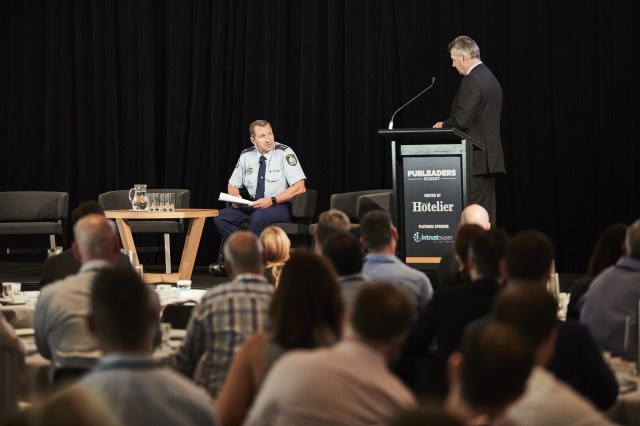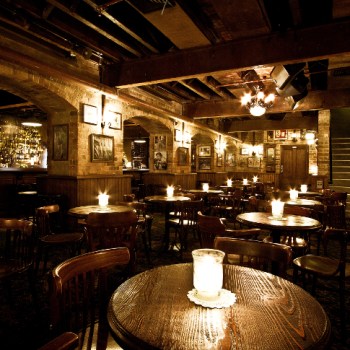By Vanessa Cavasinni, editor Australian Hotelier
Superintendent David Donohue, Commander of the Sydney City LAC, stated at the Pub Leaders Summit that he believes drugs are bigger problem than alcohol, and is responsible for how licence policing is evolving.
During his session with John Green, director of liquor and policing for AHA NSW, a statstic was read out that showed that more people drivers were killed on Australian roads in 2016 due to illicit drugs rather than alcohol. Superintendent Donohue was asked about how this was changing police management and reporting of incidences with illegal drugs. Donohue acknowledged that drugs were a bigger problem than alcohol.
“Certainly, the way we enforce drugs in licensed premises is difficult. A lot of it is based on intelligence from people in the place that tell us certain things about the behaviours, whether it’s the security involved or whatever the case may be – intel is basic core policing. Again if there’s an assault or something linked back to the premises and there’s an interrogation or interview with the individual and they disclose that they were supplied drugs there, then we go about covert surveillance, covert operations, depending on the scale and magnitude of it.
“But it’s difficult and it’s more broadly a society problem now, drugs are taking over as more recreation than alcohol, and that’s changing the behaviour of us in terms of licensing enforcement as you rightly see on the road.”
As to the relationship between police and publicans, Donohue stated that “cooperation is where we want to be,” but in doing so, it was important for the police and businesses to first establish a conversation and good relationships, so that if any incidents did occur, it would be easier to deal with.
He also addressed the general feeling of feat among operators that airing grievances with police would make their businesses targets for overly zealous compliance checks.
“I’d be surprised generally speaking if you would cop a payback, if you like, for airing your grievances. There’s a lot of checks and balances in our organisation that pretty much thwarts any of that sort of behaviour. But it has been, historically, from my experience, also a behaviour of some licensed premises to do that in an attempt to for us to stay away from them as well. It’s about striking that balance.”
Superintendent Donohue suggested also that it’s the bigger pubs that have a lot of experience and history that were generally more compliant, and that smaller pubs and bars could sometimes be more at risk for incidents in his experience.
“Primarily the bigger pubs and clubs, the bigger pubs certainly, tend to be more compliant because they have a history in the industry, have long-term standing in the community in a lot of cases and certainly their business model is much more robust than some of the smaller pop-up places. Their security arrangements, their risk assessment are much better in that they’re used to working in that industry, where some of these smaller places don’t have a long-term history of risk management and what they do is they bring in certain promoters if you like that bring with them inherent risks.”
Donohue also stated that the police are currently targeting karaoke bars that work outside of the lockouts, and high-volume venues.

